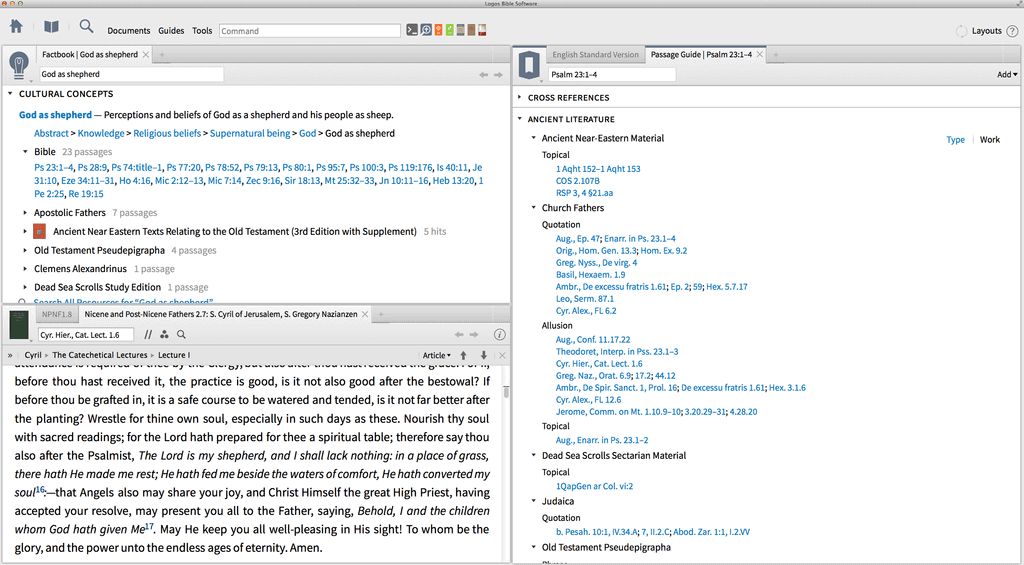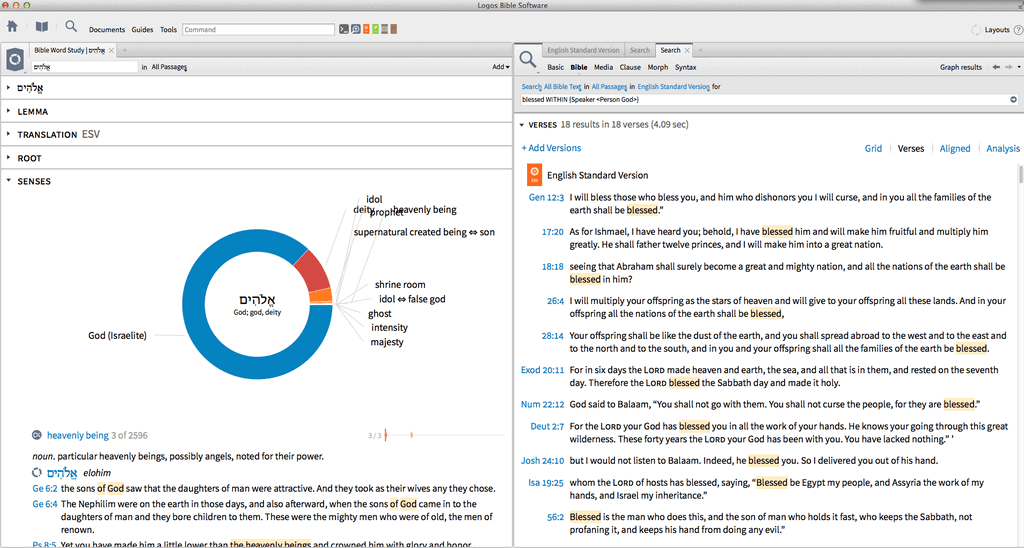Regardless of where you are in your Bible study—from eager novice to sophisticated scholar—you’ve no doubt come across an obscure or confusing passage, word, image, or practice.
The Bible is filled with images and cultural references that meant a lot to the ancient Eastern mind, but are flat-out dumbfounding today, which—unfortunately for us—means a lot of Scripture’s messages and practices get lost in translation.
Let’s look at the big picture: the Bible was written over a period of about 2,000 years, by about 40 authors with vastly different personalities and cultural backgrounds, and in three different languages—Hebrew, Greek, and Aramaic.
Every biblical author is writing from a different cultural perspective, so in order to truly understand what the Bible’s saying, you need to understand where the biblical author is coming from—you need to have a basic understanding of their culture and language, or else you won’t fully comprehend the underlying message.
The good news is that Logos comes with the best contextual tools available, so even eager novices like myself (or all the sophisticated scholars whom I work with) can make amazing new discoveries.
Here are a few ways you can better understand the biblical world with Logos:
1. Explore ancient interpretations of Scripture
No other text has had a greater influence on Western thought than the Bible. So what better way to dig into the Bible’s culture than to explore its literary contemporaries? The new Ancient Literature tool connects Bible passages to ancient literature based on shared references, themes, and historical periods, and even goes so far as to make these connections based on allusions.
For example, say you’re studying Psalm 23 and you want a better understanding of what “God as shepherd” means. If you start with the Sense Section in your Factbook, you’ll see all the varying meanings of this title. And although you may imagine a shepherd as someone gentle, kind, and quiet, the Sense Section reveals a different perspective: in biblical times, “shepherd” meant citizenry, or a united entity or nation. It meant to lead, and it meant to rule and tend to your flock. The shepherd was a strong, formidable leader—not a meek guide.
You’ll also see several links to works by the Apostolic Fathers in the Ancient Literature section. If you open these works, you’ll see that for Clement of Alexandria, the flock’s relationship to the shepherd was all about humility, and not exalting yourself above others.
For Ignatius of Antioch, God as shepherd was about unity and truth: “Where the shepherd is, there follow like sheep. For many seemingly trustworthy wolves attempt, by means of wicked pleasure, to take captive the runners in God’s race; but in your unity they will find no opportunity.”
And for Hermas, God as shepherd represented a graceful man—someone who personally greeted him and sat down beside him clothed in white.
Do you see how much this fleshes out your understanding? You could just bypass a word like “shepherd,” not knowing the significance and intensity this figure represents—or, with Logos, you can get a fuller, richer perspective of its biblical meaning.

2. Understand the real meaning of biblical words
As we all know, words can have myriad meanings. You can explore a cave and you can cave in; you can go dancing at a club and hit a golf ball with a club; you could even eat a chip or get a chip in your windshield.
Alternate word meanings are not unique to modern languages, which is why Logos includes the Sense Section—a new section in your Bible Word Study guide that shows every alternate meaning, or “sense,” of a Greek or Hebrew word, as well as where it occurs.
For example, the Greek and Hebrew word for “house,” can mean a physical house, a family, a people, a group, or a temple. With the Sense Section, you can see all these meanings and go straight to where they occur.
Let’s say you look up “light” in your Factbook—the Sense Section shows that the absence of light represents an “evil realm,” or “darkness.” So when God commands, “Let there be light,” he’s not just flipping the light switch—he’s casting hope in the darkness, he’s creating an oasis from sinfulness, and he’s doing away with ignorance of God; his presence rescues people from an evil realm.

Explore the biblical world with Logos
All these awesome tools amount to one awesome goal: better understanding the Word.
Dig into the biblical world and see how you can do more powerful Bible study!




